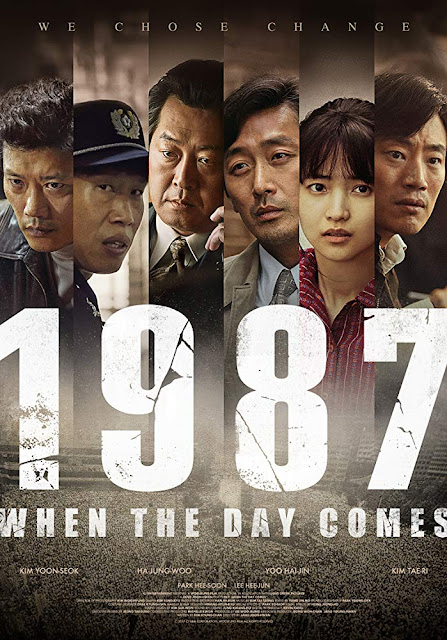1987 is a Korean foreign language film detailing the events that led to the June Democratic Uprising in South Korea.
The film follows the story of government officials trying to cover up the death of a college student who died at the hands of military police before members of the Korean public learn of said news.
1987 touches on important real world themes relating to the real-life events that occurred in Korea in ’87. Focusing on the oppressive military presidential regime and their wide scale manipulation that was used against the Korean public throughout the 1980’s.
Synopsis
Under oppressive military rule in the year 1987, Korea was a very different place. The regime ruled and had control over all things domestically. With tensions between the public and regime at an all-time high, the government began to crack down on those critical to their powers.
The film dives into early ’87 where questions are raised when a student by the name of Park Jong-chul dies while under military watch. Under scrutiny, the government attempt to keep the truth under wraps from the prying eyes of journalists, activists and political rivals.
The film follows differing points of view of government officials, journalists, students and anti-military separatists.
We follow 1987 as information about the death of Park Jong-chul becomes known. Providing insight on how those seeking justice acted against oppressive rule and how those in power dealt with the repercussions the truth has across the country.
Important Themes
The Korean public suffered many injustices while under military rule in the 1980’s. Since the year 1972, the president of the nation was elected indirectly through an electoral college. Despite a presidential assassination in 1979 and a subsequent change of leader the following year, the system remained unchanged. Making for a Korea that was run by a group of high-ranking military leaders, private citizens and politicians who did not represent the values of the Korean public.
One of the most publicized uprisings that occurred during the 1980’s was the Gwangju Uprising, which occurred after the aforementioned assassination of the president in 1979. A clash ensued between the military and protesters as over 100,000 citizens took to the streets the protest for democracy, human rights and liberties. To read more about the Gwangju Uprising you can read my blog post on the film 26 Nyeon.
With regards to 1987, the death of Park Jong-chul yet again lit the flame of the public for democratic reform. As even after the Gwangju Uprising in 1980 no change had taken place to the Korean political system. And, with the 1988 Olympics being hosted in Seoul, the world’s eyes would soon be all on Korea. However, the death of the student and subsequent cover up of it filled people with outrage. No longer were they going to be ruled by oppressive means.
Soon, the actions of many students, citizens and democratic groups led to a nationwide democracy movement and mass protests lasting from June 10 to June 29.
All of which ultimately resorted in a restoration of civil liberties, the adoption of presidential elections and other key democratic reforms that led towards the establishment of the Sixth Republic (present day) South Korean government.
1987 is one of those films which does a terrific job of of not only telling a gripping true story, but it also does an admirable job of telling the personal stories of the actual people involved in the June Democratic Movement.
For me, that is what is so beautiful about film. You can tell personal stories of those affected by events and share it all with others. Not only is 1987 an informative and entertaining film, but it has a very intimate feel to it as the whole story focuses on the people whose lives were forever affected by said events.
Conclusion
As a whole 1987 is a spectacular film. It paints a realistic picture of what happened in ’87 and did a tremendous job of re-creating a lifelike, tense atmosphere.
The cast provided a powerful and emotional performance. And, as a film, it was directed so well. Jang Joon-hwan did a fantastic job (he also directed one of my other favourite films called Save the Green Planet, which you should also check out).
Be sure to add 1987 to your watch list. It is an amazing watch. It tells a true story of grit, determination, justice and humanity.


